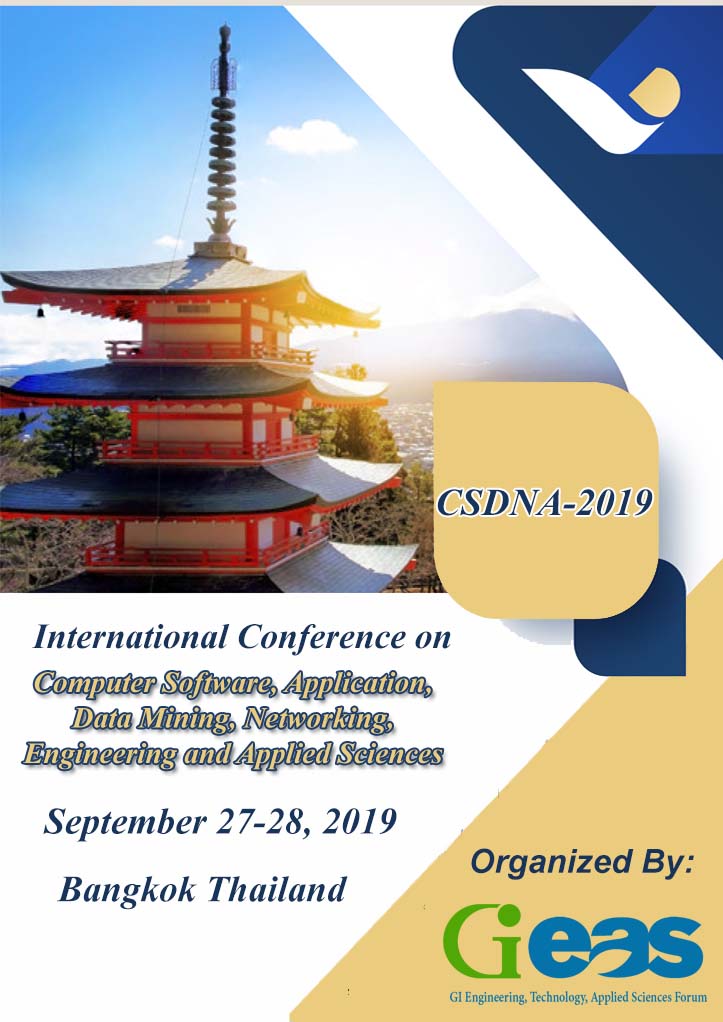
CSDNA Proceedings
CSDNA Proceeding
Volume 1, Pages 1-62
International Conference on
Computer Software, Application, Data Mining, Networking, Engineering and Applied Sciences (CSDNA-SEP-2019)
September 27-28, 2019 Bangkok, Thailand
Edited by Dr. Ahmed Saddam
Track: Social Sciences and Humanities
Exploring New Business Models of Enterprise from the Point of View of Circular Economy – A Case study of CHYHJIUN Jewelry
Pages 01-08
Chan, Hsiao-Ching, Tu, Jui-Che, Chen, Chi-Hsiung
Abstract
The Relationship between Financial Agglomeration and Economic Development: The Case of the Five Provinces in Northwest China
Pages 09-21
Xiao Xi
Abstract
The Research of Using Image Explore Children’s Cognition Towards Dangerous Items That Cause Fires and Understand
Pages 22-27
Ching-Chu Hung, Chen-Fu Wang, Chih-Chieh Yang
Abstract
Research-Based Approach in Business Courses: An Anchor for Industrial Design Students’ Comprex
Pages 28-33
Jayson E. Lannu
Abstract
Students’ Perception on Talk Utilized by University Lecturers
Pages 34-39
Arif Rahman
Abstract
Track: Engineering & Technology Studies
Towards IPV6 Adoption in Developing Arab Countries in Western Asia Region
Pages 40-45
Baha Khasawneh1*, Batool AlArmouty2
Abstract
The Transformation of the Political Center in Israel: From Satellite Parties to Parties Competing to Form a Government
Pages 46-53
Subrat Das, Abdallah Al Kindi, Rajeev Kumar Singh
Abstract
Liquid Product Properties of Pyrolyzed Bamboo Sawdusts
Pages 54-62
Lucita C. de Guzman, Vicente M. Armones IV, Mark Vergel B. Borja, Shaira June G. Gadot, Dennesa Luz D. Mijares
